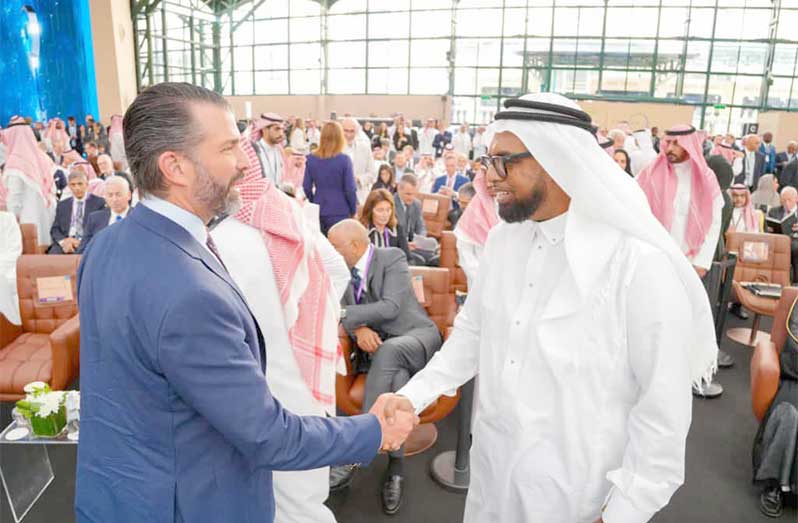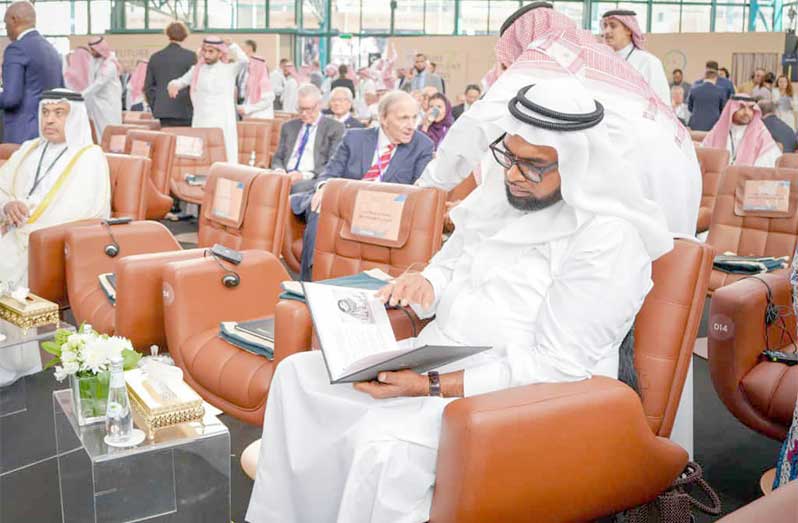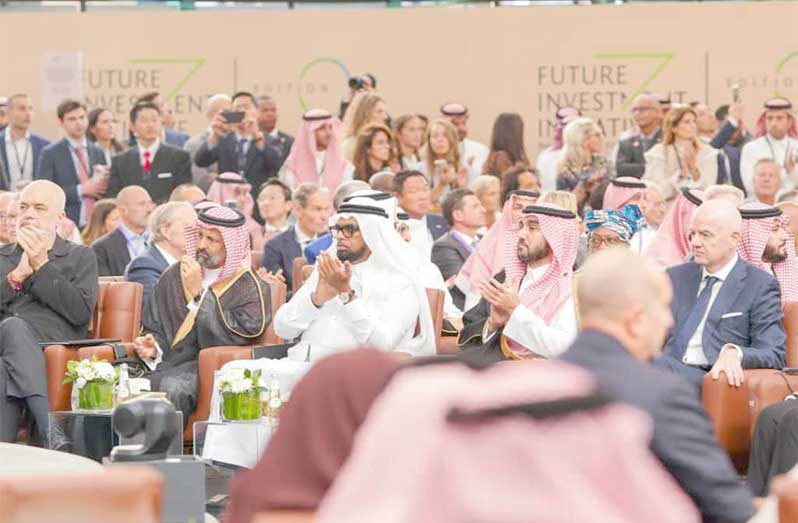 —President Ali tells world leaders in Saudi Arabia
—President Ali tells world leaders in Saudi Arabia
GUYANA is rapidly emerging as one of the most dynamic developing economies, leveraging its newfound oil wealth to drive sweeping transformation across energy, technology and human-capital development.
Speaking at the ninth Future Investment Initiative (FII) in Saudi Arabia on Tuesday, President, Dr Irfaan Ali outlined an ambitious vision to position the South American nation as a competitive force in the global economy powered by innovation, sustainable growth and strategic investment.
With the discovery of vast oil reserves, Guyana has entered a new era of prosperity that is fuelling unprecedented infrastructural expansion and social development. The government is channelling revenues into critical sectors such as education, healthcare and digital technology, laying the foundation for long-term resilience and inclusive growth.
“We recently discovered oil and that has really ignited the pace of transformation, and it has also allowed us to make the right set of investments in human capital, health care, education and technology.
“To compete in a global system, regardless of how big or small you are, you have to have the right infrastructure, the right education system, health care, and food system that will keep your people out of starvation and hunger. You have to do these things,” President Ali said.
Central to this transformation is the creation of a modern energy infrastructure designed to deliver affordable and competitive power.
This shift is set to underpin Guyana’s aspirations to become a regional hub for technology, with investments in artificial intelligence, data centres and digital innovation at the heart of its growth strategy.
“We are now able to have energy that will be competitive and allow us to compete in the energy infrastructure of which digitisation [and] AI will be a big part,” President Ali said.
Already, Guyana has touted plans to establish a hyper-scale data centre that could power Artificial Intelligence (AI) and digital services across the Caribbean.
The government is actively advancing opportunities that would position Guyana with the technological evolution of the world, especially in the areas of AI, digitisation and data infrastructure.
Just recently, President Ali announced that Guyana will begin the large-scale implementation and distribution of the electronic identification system.

The President also assured citizens that there will be public awareness and education as the government looks to roll out the initiative. Dr Ali was the first to receive his E-ID back in August.
The biometric cards will not only offer citizens preferential treatment in certain areas, but will also strengthen border control by monitoring who is entering the country.
The cards will be important for daily transactions, including opening bank accounts and are a critical part of Guyana’s wider digital transformation agenda.
At the same time, the administration is ensuring that traditional industries remain central to national progress.
Significant investments are being made to strengthen Guyana’s position as a global leader in sustainable agriculture and food security, while protecting its vast forests as part of a wider commitment to environmental stewardship and climate responsibility.
“We are also investing in the traditional sectors, ensuring that we position ourselves as a food capital of the world, investing to ensure that we keep our standing forest standing for the sake of humanity, we’re investing to ensure that we have the most skilled population,” President Ali told world leaders on Tuesday.
Further, recognising the constraints of a small population, Guyana is actively seeking international partnerships to accelerate its development.
The government’s strategy focuses on attracting skilled talent, advanced technologies and proven investment models to fast-track progress rather than build from the ground up.
“We know like Qatar, we have to bring in talent, we have to bring in investment. We have to bring in technology. So that is what we’re doing. We don’t have the time or the human-resource assets in terms of numbers to start from scratch; we have to bring in the models that are proven and then advance it for our own development,” Dr Ali said.



.jpg)









